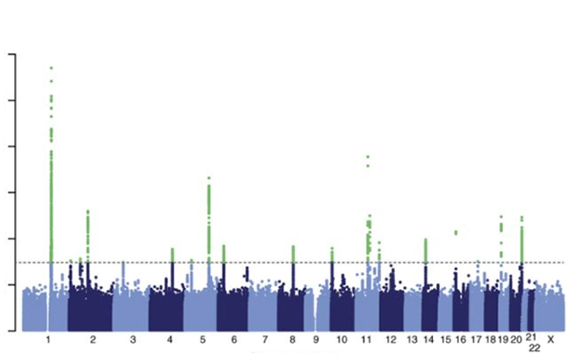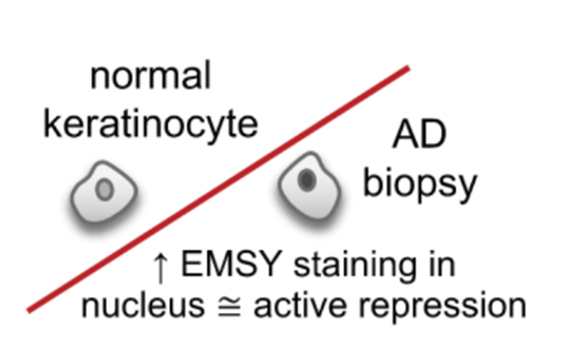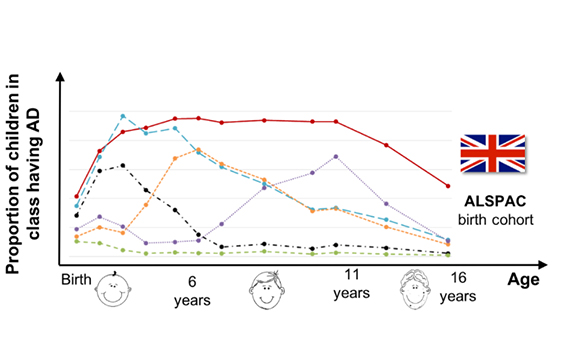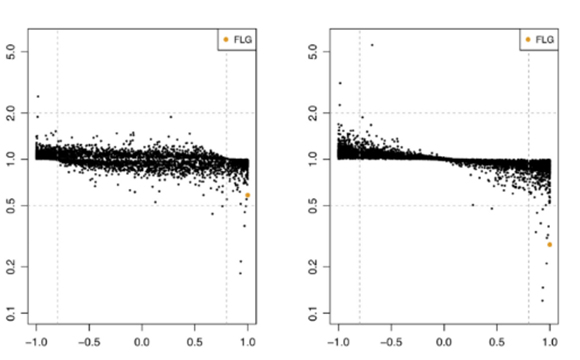1.
Growing real skin
in the lab
With consent, we retrieve human skin samples that would otherwise be discarded from surgical procedures at our nearby hospital - the Western General, Edinburgh.
In the lab we extract cells from each layer of the skin and use these to grow a model skin which can then be studied in detail.
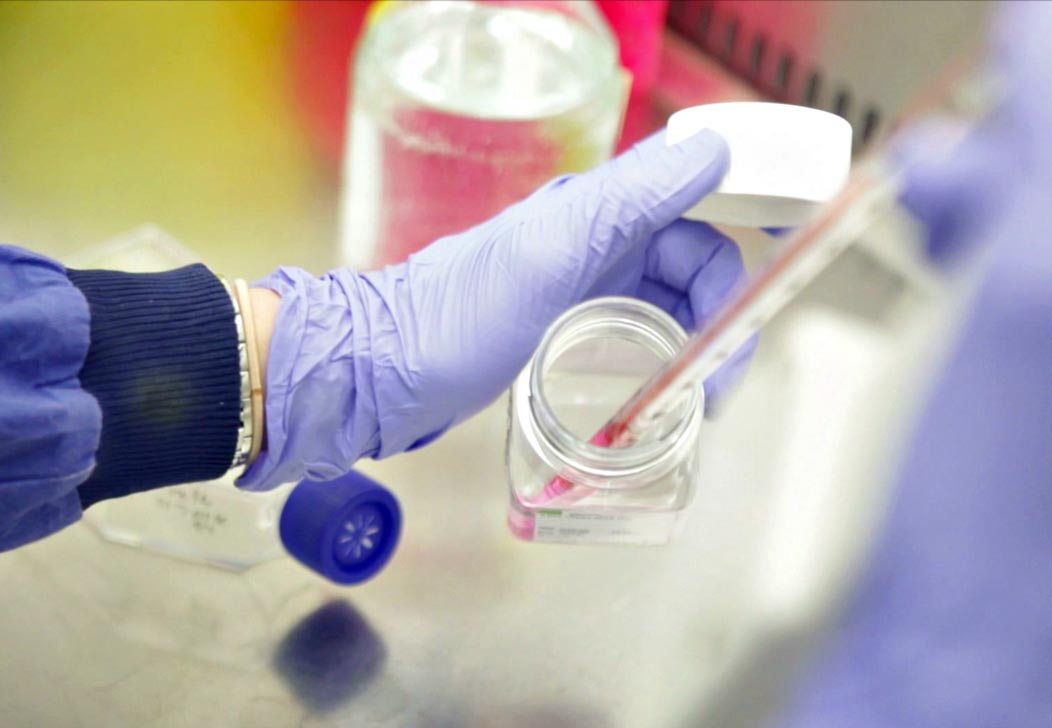
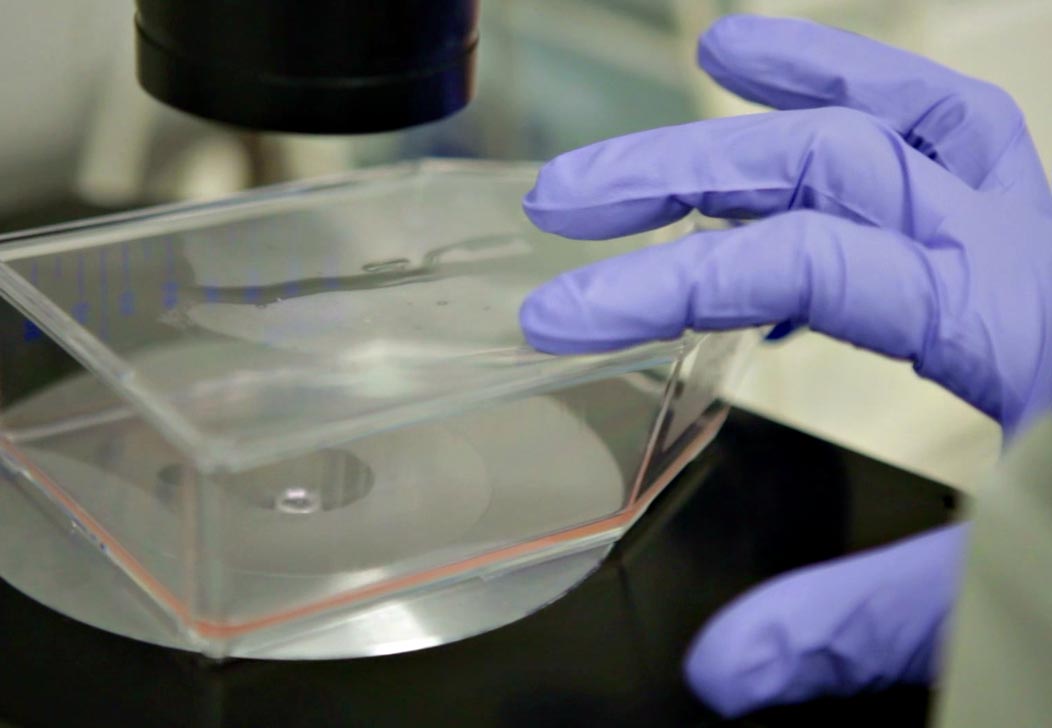
2.
Testing genes and
their effects in skin
Genes within the cells in our model of skin can be switched on or off to test their effects in causing eczema. Genes that cause eczema make the skin more ‘leaky’ and more prone to inflammation.
We test ‘leakiness’ using a dye that can penetrate skin when it’s leaky and by measuring how much water escapes out from the skin surface.
We test ‘inflammation’ by measuring amounts of RNA and proteins produced by the skin cells.
3.
Analysing DNA samples
from large populations
Working with other groups of researchers worldwide, we are involved with analysing DNA from tens of thousands of people from different populations.
By comparing the DNA code in people with eczema to those without the condition, we can identify differences which may lead to the skin disorder.
These clues in the DNA code point to which genes we should investigate further.
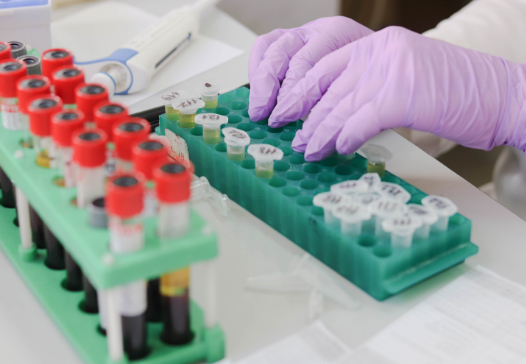
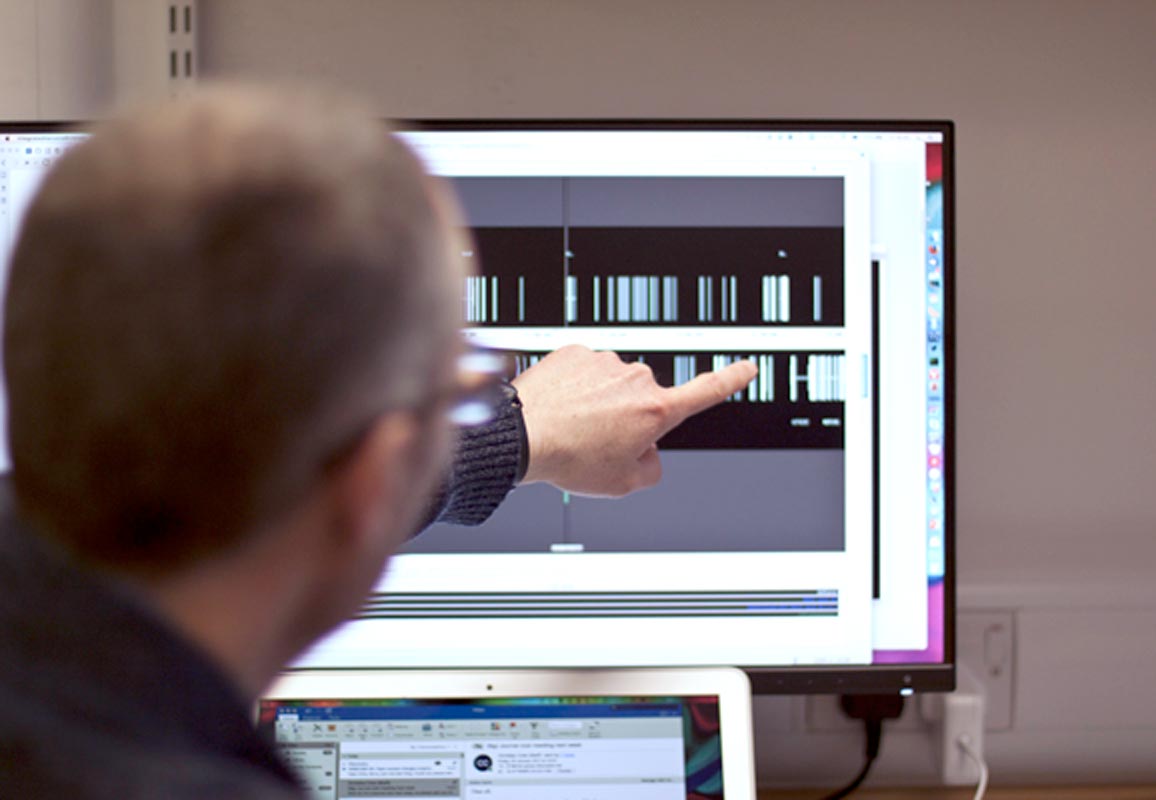
4.
Mathematical analysis of molecular and genetic information
DNA analysis produces large amounts of data which cannot be understood without careful statistical analysis.
DNA codes for RNA which codes for proteins and these can also be measured, to produce even more data.
Making sense of all this information requires mathematical analysis by experts in the Brown lab, working with our collaborators in Edinburgh, Dundee, Bristol and internationally.
5.
Working with patients and families affected by eczema
Our research is motivated by patients and families who share their experiences of the effects of eczema, including itchy, dry, sometimes infected skin.
These symptoms can lead to discomfort, poor sleep, lack of concentration, social isolation and frustration with treatments that are at best only partially or temporarily effective.
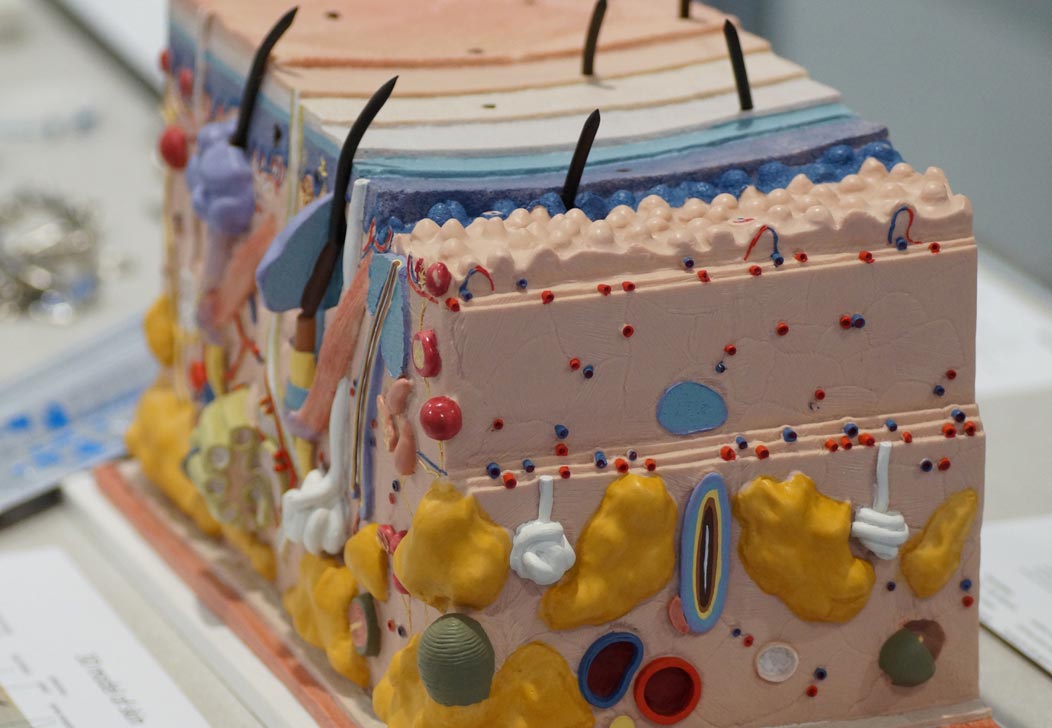
Our research is motivated by patients and families who share their experiences of eczema ...
... discomfort, poor sleep, lack of concentration, social isolation and frustration
Read More
Multi-ancestry genome-wide association study of 21,000 cases and 95,000 controls identifies new risk loci for atopic dermatitis
EMSY expression affects multiple components of the skin barrier with relevance to atopic dermatitis
Identification of atopic dermatitis subgroups in children from two longitudinal birth cohorts
Filaggrin-stratified transcriptomic analysis of pediatric skin identifies mechanistic pathways in patients with atopic dermatitis

